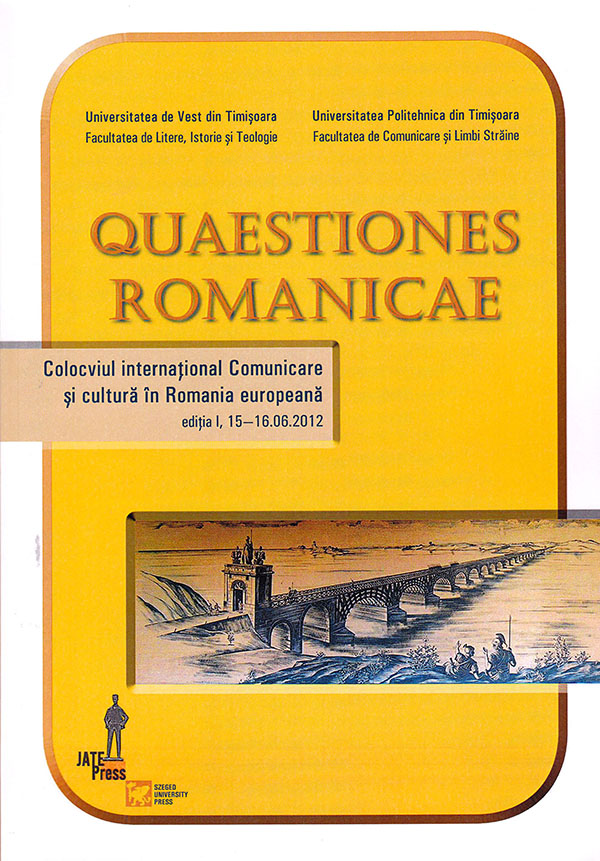Deux langues romanes en contact: le roumain et le français
Abstract: The present study is based on the research results within the FROMISEM project which approaches the topic of French lexical borrowings in Romanian from different points of view: the importance of the process, stages of entering, the domains in which they manifest, problems of adaptation and integration, types of etymology and, especially, their semantic characteristics. Moreover, we shall develop three of these research directions: the criteria of establishing the etymology of lexical borrowings; the dynamics of the French loans in the main specialized registers (economic, law, medical, IT etc), their adaptation to our phonological and orthographic system. In this respect, The Dictionary of the French Lexical Borrowings (DILF) represents a vast corpus of Romanian words with French etymology, comprising 30 000 of lexical entries and, also, an useful research instrument concerning the dynamics of these borrowings, their etymology and the process of their adaptation
Keywords: lexical borrowing, gallicism, multiple etymology, root, neonym, neologism.
Résumé: Prenant comme point de départ la présentation des principaux résultats du Projet Fromisem, projet qui se propose d’analyser les emprunts lexicaux roumains au français sous différents aspects (importance, étapes de pénétration, domaines de manifestation, problèmes d’adaptation et d’intégration, types d’étymologie et surtout, analyse sémantique), cet article se propose de développer quelques-unes de ces directions : critères pour établir l’étymologie des emprunts lexicaux, dynamique des emprunts roumains au français dans les principaux domaines (économique, juridique, médical, informatique, etc.), adaptation de ces emprunts aux systèmes orthographique et phonétique du roumain. Dans ce contexte, le Dicţionarul de împrumuturi lexicale din limba franceză (DILF) représente un corpus de grandes dimensions de mots roumains à étymon français, presque 30000 entrées lexicales, et un instrument de travail pour tous ceux qui s’intéressent à leur évolution, à leur étymologie et à leur adaptation en roumain.
Mots-clés: emprunt lexical, gallicisme, étymologie multiple, étymon, néonyme, néologisme.
